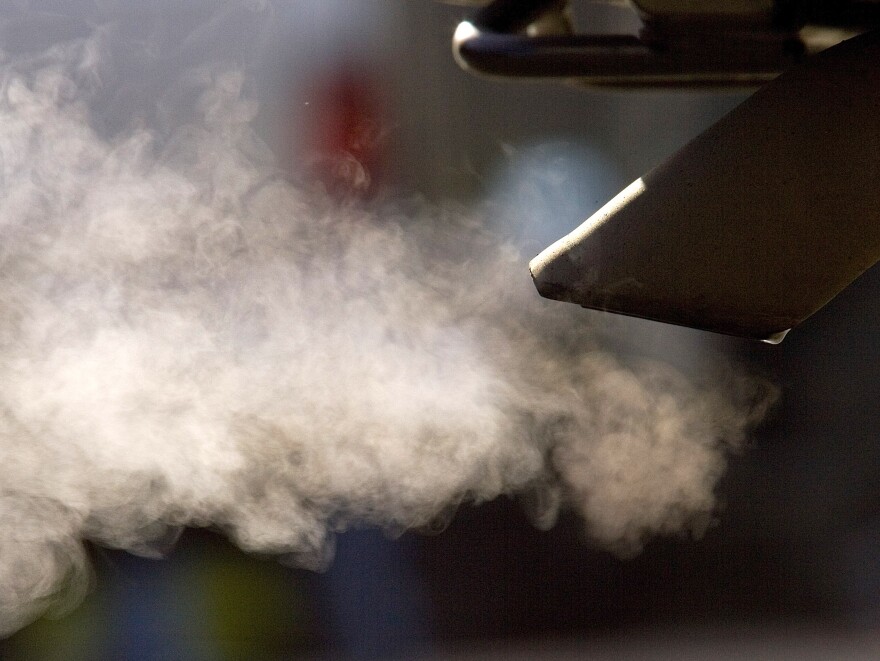Calling them "sensible standards for cars and gasoline that will significantly reduce harmful pollution, prevent thousands of premature deaths and illnesses [and lead to] efficiency improvements in the cars and trucks we drive," the Environmental Protection Agency on Friday proposed national rules to reduce the amount of sulfur in gasoline.
According to NPR's Richard Harris, the EPA believes the lower-sulfur gasoline, which is already in use in California, Europe and Japan, will help catalytic converters work better and reduce the emissions that lead to smog.
The EPA, Richard adds, says if the rule is adopted, gas prices will rise by a penny a gallon. But the oil industry opposes the rule, saying it will add 6 to 9 cents to the cost of a gallon of gasoline. If adopted, the rule would take effect in 2017.
As The Hill writes, the rules drew sharp criticism from some Republicans "who allege the mandate will increase consumer costs."
The EPA "estimates that by 2030 the rules will annually avoid up to 2,400 premature deaths, 23,000 cases of respiratory ailments in children and other gains, totaling between $8 billion and $23 billion in yearly health-related benefits," according to The Hill. But House Energy and Commerce Committee Chairman Fred Upton, R-Mich., said that "increases in gas prices disproportionately hurt the nation's most vulnerable individuals and families."
USA Today notes that "automakers support the proposal and say the fuels are needed so newer catalytic converters can better scrub smog-causing particles out of vehicle emissions. 'Our cleaner cars will need even cleaner fuels like those already sold across Europe and Asia, and we are pleased EPA is proposing cleaner fuels,' said Gloria Bergquist of the Alliance of Automobile Manufacturers."
Copyright 2021 NPR. To see more, visit https://www.npr.org.



